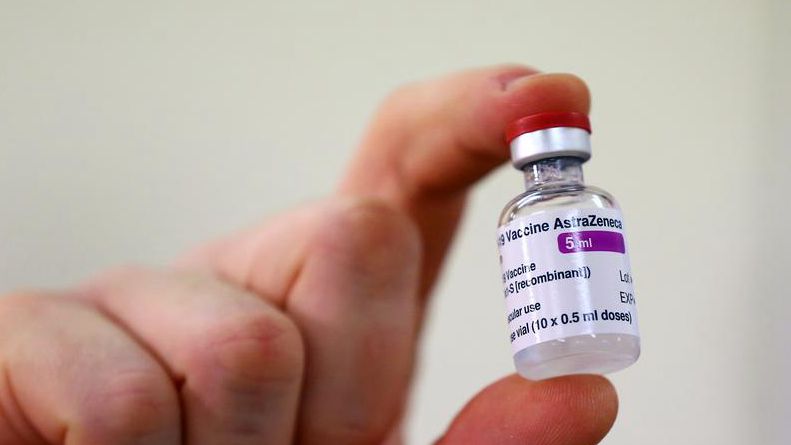
More countries are fully or partially suspending the use of the AstraZeneca/Oxford COVID-19 vaccine over reports of alleged fatal blood clots among recipients, as the World Health Organization (WHO) is reviewing the available vaccine data.
France has suspended vaccinations with the vaccine as a precaution for at least 24 hours on the orders of President Emmanuel Macron.
Spain announced a minimum 15-day suspension effective immediately, while Germany stopped administering the AstraZeneca vaccine on the same day.
Italy's suspension expanded nationwide as a precautionary measure, after its northern region announced a halt in use following the death of a local teacher on Sunday who was inoculated one day before.
European countries including the Netherlands, Ireland, Cyprus, Denmark, Austria, Iceland, Bulgaria, Luxembourg, Estonia, Lithuania and Latvia have already suspended the vaccine.
Thailand was the first Asian country to halt the use of the jab over safety concerns. However, no African country has stopped the rollout of the vaccine.
Nigeria received 16 million doses of the jab from the COVAX Facility and has distributed to the states where vaccinations have commenced since last week.
On its investigation into the safety concerns of the jab, the WHO Director General, Dr Tedros Ghebreyesus stated that it was routine.
"This does not necessarily mean these events are linked to COVID-19 vaccination, but it's routine practice to investigate them, and it shows that the surveillance system works and that effective controls are in place. "
The WHO's Global Advisory Committee on Vaccine Safety is reviewing the available data and met on Tuesday for further discussion.
Tedros said the WHO was aware multiple countries had suspended the use of AstraZeneca's COVID-19 vaccine following reports of blood clots in people who had received the vaccine from two batches produced in Europe.
A spokesperson for AstraZeneca explained that a review of safety data of people vaccinated with the shot has shown no evidence of an increased risk of blood clots.
"An analysis of our safety data of more than 10 million records has shown no evidence of an increased risk of pulmonary embolism or deep vein thrombosis in any defined age group, gender, batch or in any particular country with COVID-19 vaccine AstraZeneca. "
"In fact, the observed number of these types of events is significantly lower in those vaccinated than what would be expected among the general population, " AstraZeneca noted.
The European Medicines Agency stressed that there was no indication the shot was causing blood clots, adding that it believes the vaccine's benefits continue to outweigh its risks, even as the WHO also said, there is no indication to not use it.




No comments:
Post a Comment